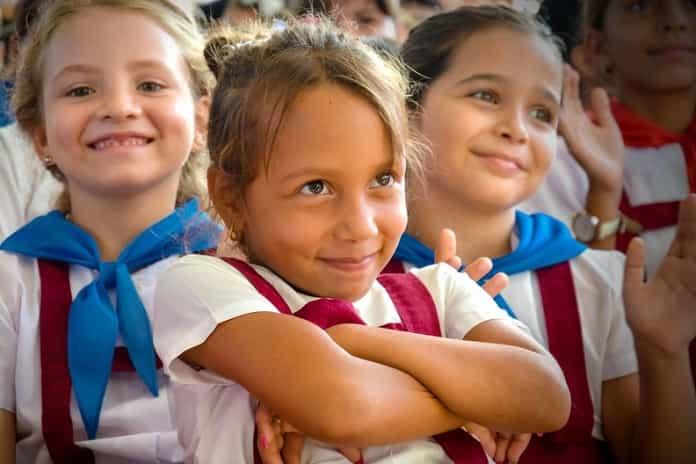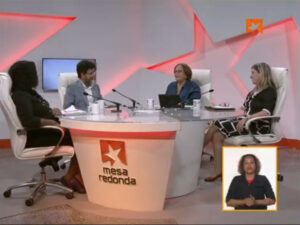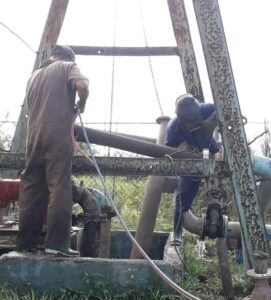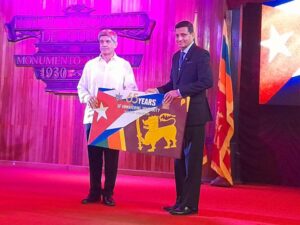The draft Code for Children, Adolescents and Youth, which aims to establish an institutional framework to implement policies that guarantee the protection, inclusion and contribution of this age group to the development of society, is currently undergoing a broad consultation process and will be approved by Parliament in July.
How this code will protect children, adolescents and young people, and how it will include other social actors, are among the intricacies of the debates that have taken place. But the mere fact that Cuba has such a norm means embracing and protecting the future in an increasingly demanding context.
It is no coincidence that the First Secretary of the Central Committee of the Party and President of the Republic, Miguel Díaz-Canel Bermúdez, described it as a totally ennobling text, which will be «known, interpreted and assumed when it is approved». Because it prepares for life, it prepares «our children, adolescents and young people so that they can develop all their capacities in favour of the Revolution».
WHAT DOES THE CODE SAY?
The norm reflects that children, adolescents and young people are full subjects of rights, which implies the possibility of exercising themselves, with their participation in all matters that concern them, in accordance with their psychological maturity and progressive autonomy.
Therefore, people should respect their particular condition as developing persons, take into account their best interests in all decisions that concern them, encourage their participation and train them in the knowledge, exercise and enforceability of their rights.
Meanwhile, young people have the right to exercise their personal freedom, to freely express and communicate their ideas, feelings and criteria, in accordance with the provisions of the Constitution.
They shall also receive accurate and useful information, as well as access to information and communication technologies.
On the other hand, it is recognised that the competent state authorities will guarantee the prevention, protection, investigation and punishment of acts that threaten the survival, development or deprive the lives of the persons protected by this legal framework.
Regarding the right to inclusion and integration of persons with disabilities, the draft bill states that they have the right to be provided with reasonable support and adjustments that allow them to exercise their rights effectively.
In this sense, the institutions and facilities that provide services are obliged to use appropriate signs, eliminate architectural barriers, establish formats that are easy to read and understand, and provide any measure necessary for the realisation of their rights.
It is outlined that everyone has the right to care that ensures their physical, psychological and emotional well-being; as well as that their participation and co-responsibility in domestic and care work with respect to other persons, minors or adults, cannot violate their best interests.
The law also calls for information and education on sexual and reproductive health. It stipulates that the existence of and access to sexual health services and programmes must be guaranteed in order to strengthen personal fulfilment, prevent adolescent pregnancy and sexually transmitted infections, reduce the risks of mistreatment, abuse and exploitation, and prepare them for responsible parenthood in adulthood.
This is why any practice aimed at misinformation about sexuality, withholding the provision of contraceptive methods or sterilising children and adolescents for contraceptive purposes is prohibited.
PROTECTION AGAINST FORMS OF EXPLOITATION
Child labour, forced marriages, child pornography, sex tourism, prostitution, kidnapping or any other form in which this age group is used as an object by adults, for economic or sexual purposes, will be criminalised as established by law.
In addition, it is decreed that the State has the obligation to establish policies, programmes, plans and projects to prevent and eradicate manifestations of exploitation.
Similarly, it guarantees the provision of specialised protection services for the care, family and social reintegration of persons whose rights have been violated by abandonment, exploitation, abuse and degrading treatment.
It stipulates that anyone who becomes aware of an act of exploitation of this kind is obliged to report it to the authorities in charge.
RECOGNITION OF CHILDREN, ADOLESCENTS AND YOUNG PEOPLE
- For the purposes of this Code, children and adolescents are considered to be persons from birth until they reach 18 years of age:
- Early childhood: from birth to six years of age.
- Childhood: from six to 12 years of age.
- Adolescence, from 12 to 18 years of age.
- Youth, a strategic group, is comprised of people from 18 to 30 years of age.




